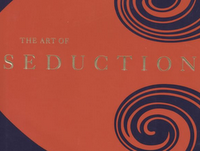Coffee with JWT Associate Planning Director, Prabs

D: Is a regional APG the result of good planning or is good planning a result of an APG ? Is Dubai ready for one?
P: I think it works both ways, they are not mutually exclusive. But that is possible only if a Planning culture exists in its true form even to a lesser extent, currently it doesn’t. So to answer your second question, Dubai is not quite there yet I feel. But that shouldn’t stop us from making an attempt to create the APG Middle East. It just requires getting some of the Planning minds together and starting a dialogue in conjunction with APG UK.
D: Any great campaigns from the region you could site with planning written all over them?
P: NONE :(
D: As a planning director I'm sure you've accumulated an insight or two on spotting talent, could you share any with us? What is it you look for in a young planner?
P: Planners in general need to be driven by and equipped to contribute to outstanding and effective advertising. Obviously, they need to be skilled in some fundamental pre-requisites. What follows is by no means an exhaustive checklist, but works as a good benchmark –
a. Passion for advertising as a business. They need to be infectiously passionate about advertising because that is what we do. If we are not driven by contributing at every step of the advertising development to encourage great advertising (that works), then Account Planning is not the best option. They should have a sensibility about advertising because at the end of the day, a Planner needs to know how to use information to craft advertising.
b. They need to have an intuitive ability to see beyond the façade of a consumer, which is where insights lie. To this effect they need to have a unique understanding of human behavior and advertising’s ability to influence it.
c. Having child-like curiosity, ask probing questions, be deeply curious about why people do what they do. Being both ‘right brain’ and ‘left brain’ thinkers helps - simultaneously creative, innovative, and instinctual, while also being disciplined and logical thinkers.
d. They need to be sensitive to cultural context, pop culture and trends. They must understand the cultural context the brand and consumer live in. They need to have an insatiable appetite for reading, learning and applying their knowledge to brands and communication.
e. While this comes with practice, they must be able to synthesize vast amounts of data and bring it down to a single point of view. This might apply to a seasoned Planner, but part of the art and science of being a Planner is the kind of magic that occurs when they use their intelligence, instinct, judgement, and intuition to integrate information and identify a key compelling insight that becomes the platform for strategic development – not dwell in intellectual reinterpretations of a business problem that lead nowhere.
f. Existence of conceptual skills and imagination, 'inspiration' being the operative word here. Someone who does things in an inspiring manner - who can craft a thought in the most inspiring manner. Again, this will come only from practice, but taking consumer knowledge and packaging it in a palatable and motivating form for creatives. To me it is the ability to understand your intuition – people who trust their instincts to recognize truths. Not simply report back what consumers say, but uncover the meaning behind what is said and why. g. Above all, common sense !
To sum this up, I feel the value of planning is rooted in the unique understanding of human behavior and our ability to influence it. Junior or senior Planners, both need to believe and live by this, only then will they make a meaningful contribution to the creation of advertising and building brands.
D: What do you think is the toughest challenge planners tend to face in their everyday jobs?
P: Juggling the role of a brand strategist and a ‘creative’ planner – time spent on the latter is limited due to many internal and external factors. A struggle to agree on an insight with clients as well as creatives - each person in the business seems to have his or her own definition. Trying to make people in the agency understand that an idea can turn to dust or magic, depending on the talent that rubs against it. Point being, an inspiring brief will result in breakthrough work only if it is given to a bunch of talented people. Insights and creative ideas suggested by Planners being snubbed, either because of lack of understanding or due to insecurities. Either ways, it is frustrating. Constantly educating clients that the memorable never emerged from a formula, and that principles endure, formulas don’t. Most multi national clients love to indulge in over analysis not realizing that logic and over analysis can immobilise and sterilize an idea. Like love – the more you analyse it, the faster it disappears.
D: As planners we are always in search of an idea, the commonly held notion is that ideas come from anywhere. Where is your anywhere?
P: My ‘anywhere’ list is endless - By being eclectic, reading popular magazines, newspapers, poetry, art, literature, going to the cinema and theater, watching TV (occasionally watch ones i don’t want to watch), listening to music, watching music videos, stand up comedy shows, watch ads from around the world, browse the net, talking to people, spending time with people smarter than me, reading books of all kind - creative awards annuals, popular psychology, human behavior, marketing, advertising, case studies of brands from the multitude of sources to cross fertilise, inhabit the real world, not ivory towers, ad land. Just plain watching and observing people every time I go out – at coffee shops, restaurants, bars, malls, while traveling, at airports, even in the flight, everywhere I encounter them.
D: What's wrong with planning?
P: Are you referring specifically to this region ? If yes, at the risk of sounding cynical, it is a highly ill-defined role at the moment and there is no Planning culture in the ‘real’ sense. Worse, within agencies people are unclear about the role. In addition, clients have varying expectations from Planning. Unless there is a clear definition and understanding of the discipline and unless a philosophy is practiced in reality, nothing will be right with Planning in this region.
D: If you were conducting this interview, what would you have asked yourself?
P: Am I a frustrated ‘creative’ disguising as a Planner ?
D: Many thanks Prabs, good luck with JWT!












